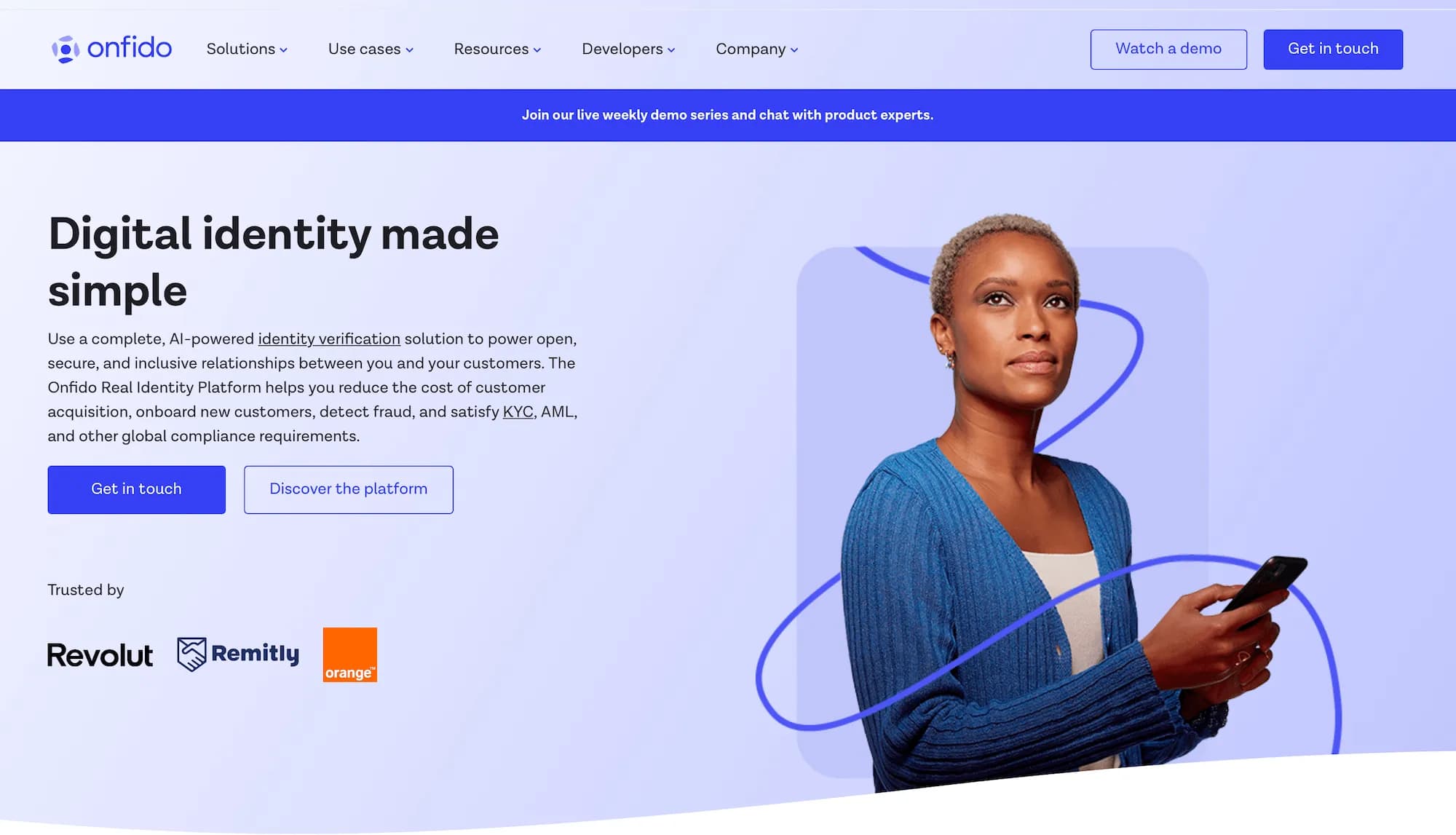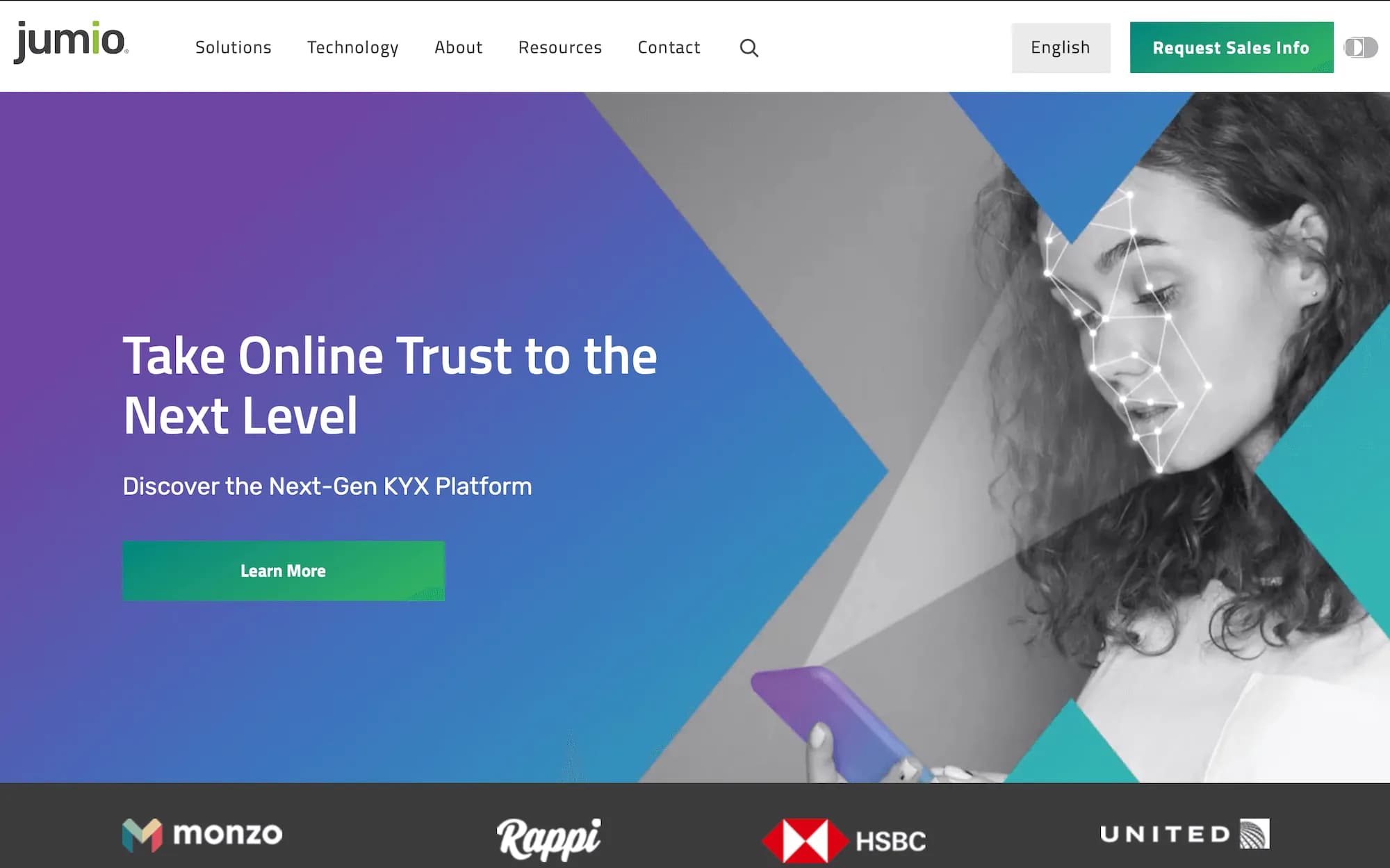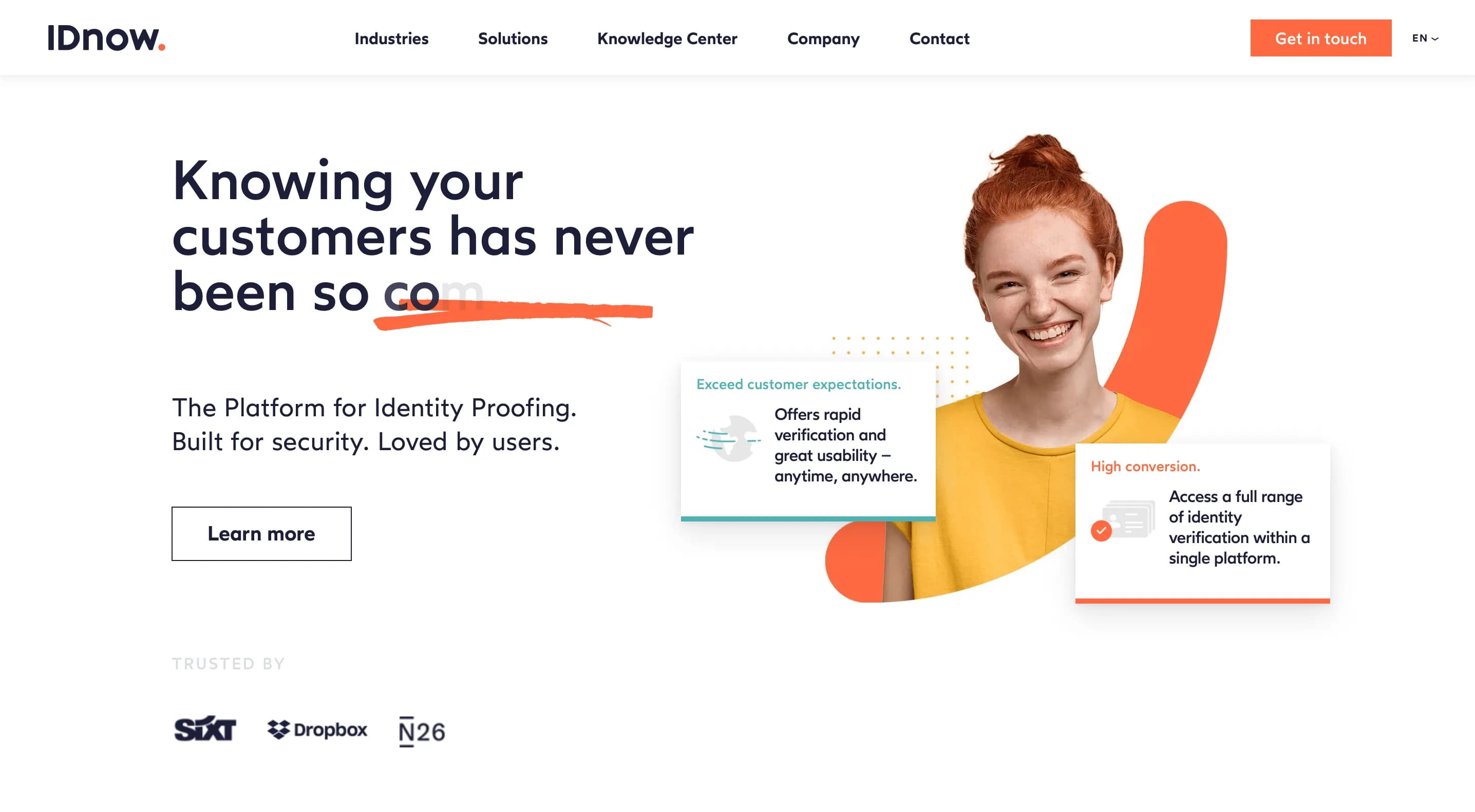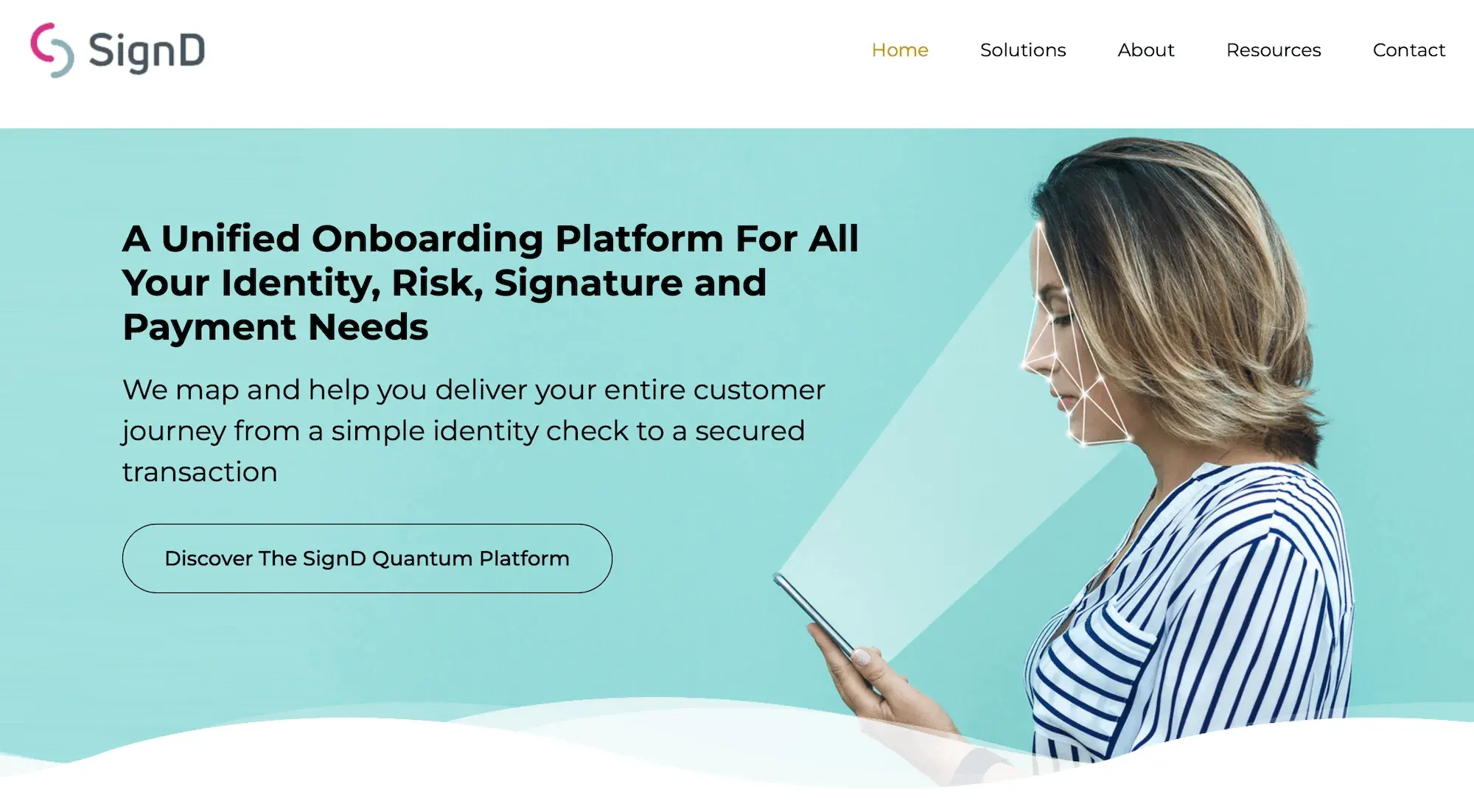For every project in the FinTech area, as well as for some others that are either regulated (i.e., MedTech) or risky (i.e., Crypto or Gaming), compliance is a necessity. While it does not generate direct revenue, any shortfall in this area might impact the overall business. Thus, it might be a good idea to take care of that up front.
While there are major players on this market (like Accenture, KPMG, and others), it might be expensive and difficult to implement for early-stage startups. Thus, one might choose smaller players on this market.
What are the differentiators that can be important for early-stage startups or businesses? Firstly, how does the service meet the requirements? Usual features required for early staged FinTech startups are the following: identity document verification, identity verification, proof of address capture, AML, PEP, Watchlist, and Sanction lists, KYC, onboarding management, transaction management, and risk scoring. Generally speaking, almost all players in this area have these features.
Secondly, these services should be easy to implement. Thus, one might check if they have proper development tools and SDKs. For example, if you build a mobile app, it would be good to have access to existing SDK for your platform, like OnFido. Another essential feature is how modern the platform is. Some players, for example, LexisNexis, with a strong and well respected brand, legacy, and history have software and workflows that are not modern. Thus, it takes more time and effort to integrate them.
Thirdly, the service should operate in the area that is needed. US startups are usually focused on the US market. They might provide limited options for the EU and UK markets. Bear in mind the regulations are different in different countries. Hence, it might be a good option to choose a local player.
Fourthly, instead of doing everything ‘in house’, one might choose to find a vendor that can provide a full service, from choosing to implementation.
To sum up, it is not difficult to create strong compliance from the beginning. One should specify the requirements and choose the right provider based on them. Below is a list of some companies that provide such services.
Solutions

Onfido: a modern and well-developed AI-powered identity solution trusted by Revolut and Orange that helps implementing the whole onboarding workflow. It has a user-friendly interface that allows customisation for the businesses which use the platform. Besides the API and packages for popular languages (python, PHP, Java, node.js, ruby), OnFido provides iOS, Android, React Native, and Web SDKs, which can speed up the development and reduce the costs of the installation.

Jumio: a US based multicomponent platform focused on traditional industries, such as Retail, FinTech, Travel, and similar, that provides the following features: identity proof, KYX/KYC, AML, and risk scoring and screening.

LexisNexis (Risk solutions): one of the oldest companies (1970) in this list and it has a good reputation, which might be important for some startups. While LexisNexis itself provides services in different areas, including legal, sales, and management, it has also a solution for FinTechs covering account opening, ongoing account management, and payments analysis.

IDnow: Identity verification platform (including German electronic ID card verification) with basic AML checks focused on security for projects in gaming, esports, crypto, and FinTech industries. Holvi, Solarisbank, AIB, Dropbox, and N26 are their clients.

SignD: an Austrian unified platform that one can flexibly configure for a custom onboarding workflow, which includes KYC, risk and documents (e-signature) management, and credit and finance scoring.

Veriff: Identity verification and KYC/AML platform that operates for different industries, including such risky areas as Crypto and Gaming. Trusted by Deel, Wise, Uphold, and others.
